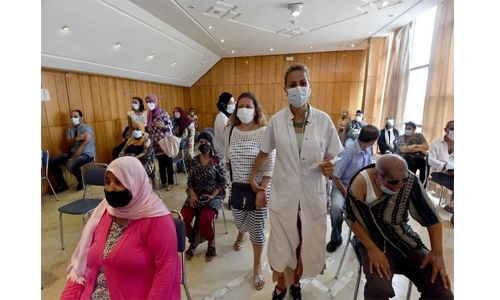US donates 110m COVID-19 jabs, but most Arab states miss out
Agencies | London
The Daily Tribune – www.newsofbahrain.com
The US has provided over 110 million COVID-19 vaccine doses to lower-income countries worldwide, but just three Arab states are recipients: Jordan, Tunisia and Morocco.
Combined, the US has provided them with 1.805 million doses — less than 2 per cent of the total donated.
“These are Pfizer, Moderna and J&J doses, and they’re reaching literally every region in the world — we’re very proud of that,” Gayle Smith, US State Department coordinator for the global COVID-19 response, said at a press briefing attended by Arab News.
She added that the US is “proud” to also be a donor to Covax, the UN vaccine-sharing program.
Figures released by the White House earlier this week showed that Indonesia, the Philippines, Colombia and South Africa have received the most vaccine doses from the US.
Each of them has received over 5.5 million doses — more than double the total provided to the three Arab countries combined.
The US has provided Tunisia with 1 million doses, Jordan with 503,000 and Morocco with 302,000.
The three Arab countries have received fewer in total than Peru alone, which has been given 2 million doses, despite Tunisia, Morocco and Jordan having nearly double the South American country’s population.
The White House said to decide which countries receive doses, it “looks at a variety of factors, including COVID-19 case rates, death rates, and hospitalizations,” as well as “current vaccination rates; responses to surges; and a country’s ability to receive vaccines and put shots into arms.”
Smith said her team wants to “lay the groundwork for how the world prepares for and ideally prevents future pandemics. By definition that has to be multilateral, by definition that has to be inclusive, because the virus doesn’t know what country it’s in.”
One important aspect of this effort is ramping up vaccine production and ensuring more countries have native manufacturing capacity, she said, adding that a “real challenge” facing the US in its efforts at home and abroad is vaccine hesitancy.
“A lot of the hesitancy is because people need basic information. They need to be reassured that vaccines are safe,” she said, adding that there is “a lot of misinformation out there, where there are people deliberately trying to make the case against vaccines. That’s a harder thing to counter, but our approach is to put the facts and the science out there.”
Related Posts

